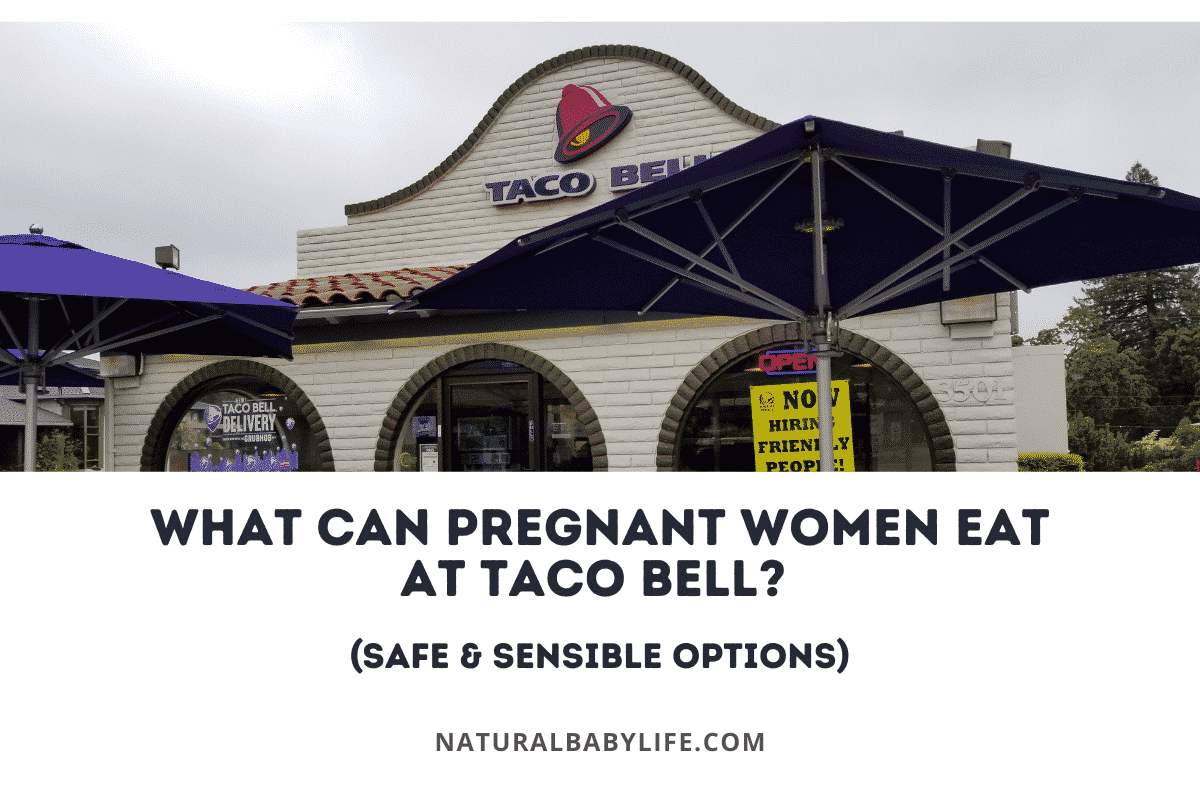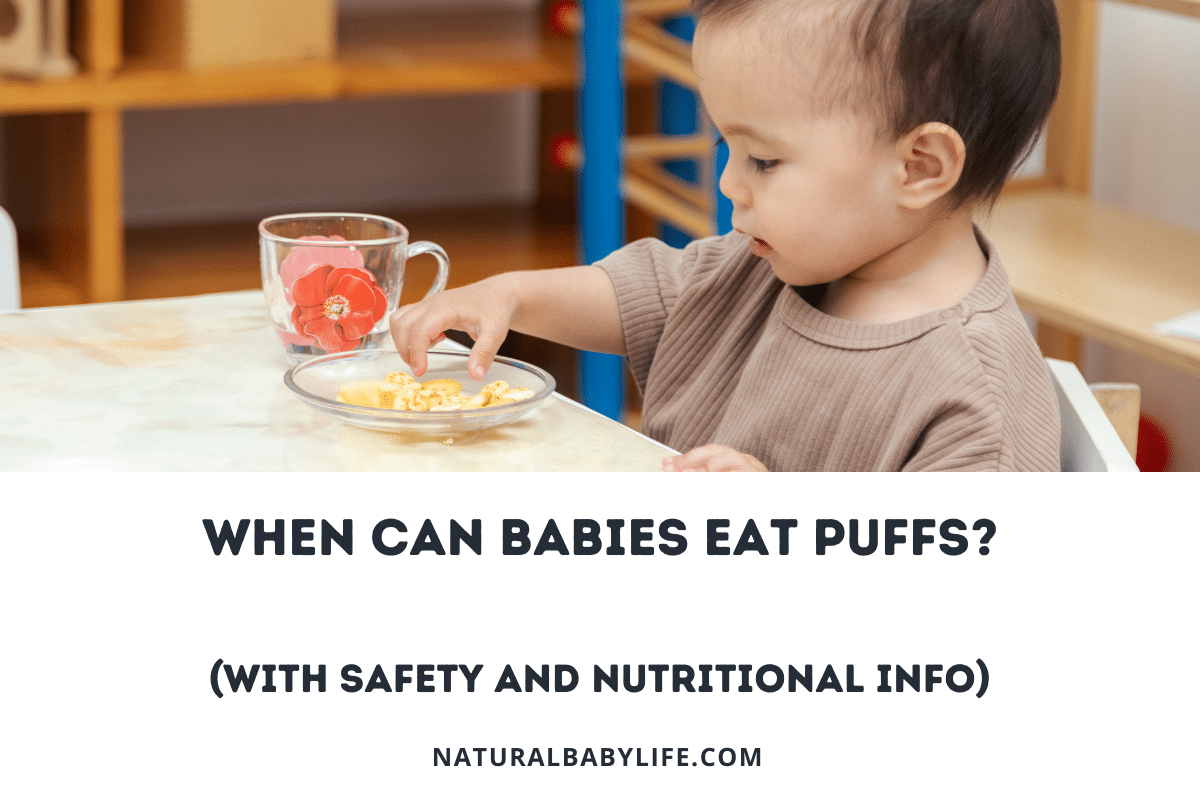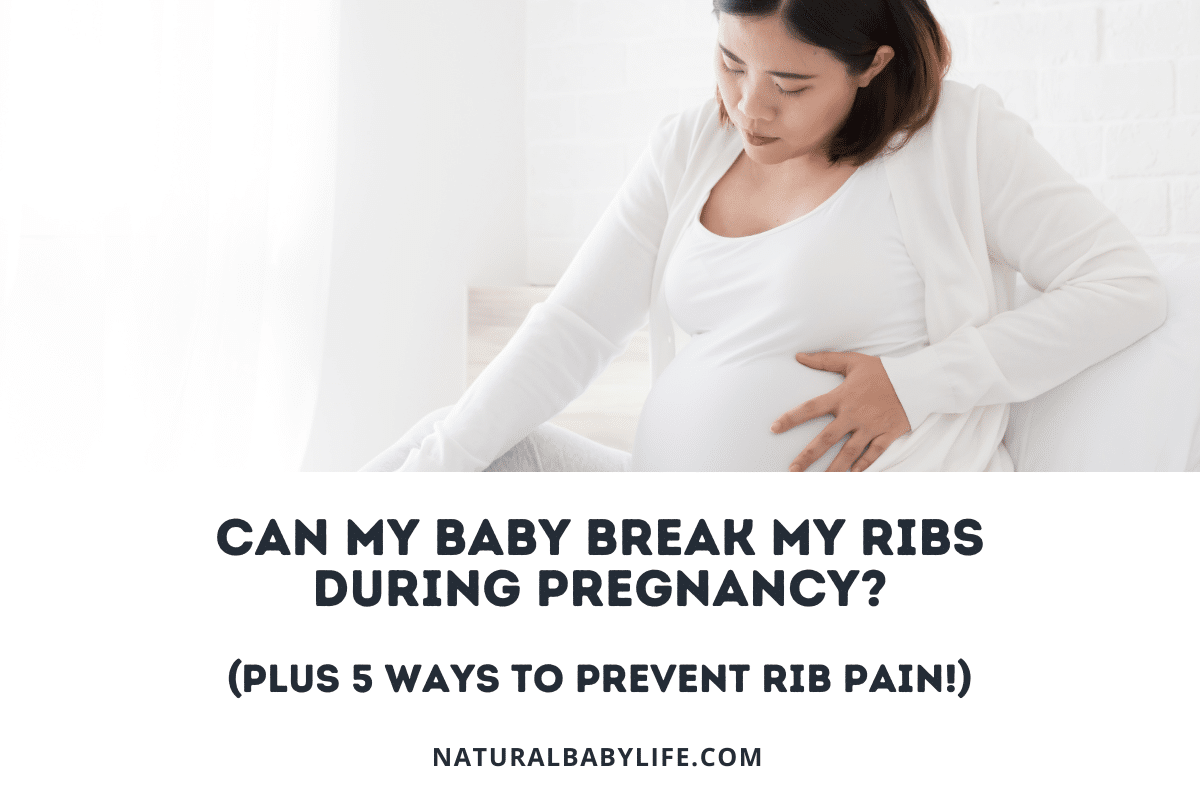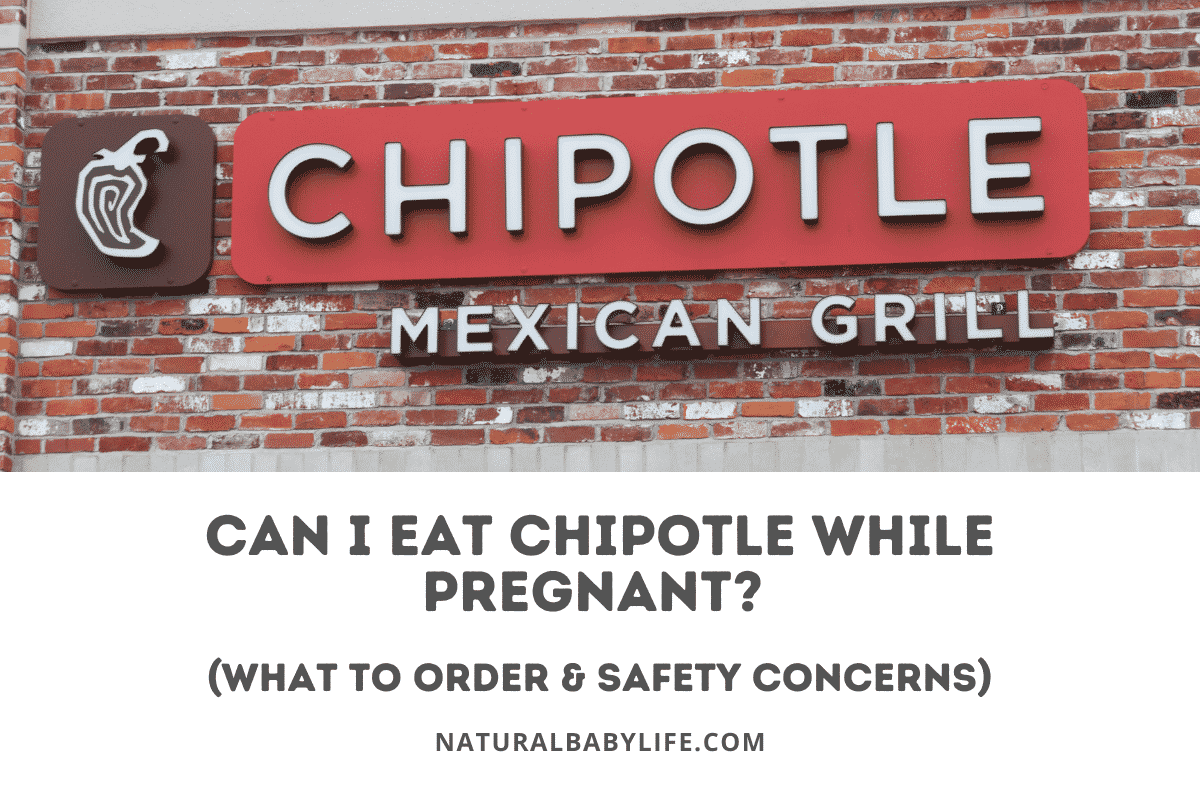Many women crave fast food during pregnancy. Knowing that fast food isn’t typically the healthiest option, you may be asking what can pregnant women eat at Taco Bell?
While many of Taco Bell’s menu items are high in calories, fat, and sodium, there are still some healthier options available. Contrary to internet rumors, Taco Bell’s meats and cheeses are safe for pregnant women to eat. The most sensible options are chicken soft tacos, Power Bowls, and bean burritos.
Below we’ll answer some common questions about Taco Bell’s ingredients and their safety for pregnant women. We’ll also look at modifying menu items and suggest three healthier options to try when you go.
Table of Contents
What can pregnant women eat at Taco Bell?
Taco Bell is one of the few fast-food chains to put their money where their mouth is in terms of cleaning up their menu. Over the last 15 years, they have committed to being transparent, simplifying ingredients, adding healthier options, and reducing sodium content in their foods.

For those of us that eat junk food as a guilty pleasure once in a while, yes, it’s okay to eat at Taco Bell while pregnant.
Let’s look at some facts, and dispel a few myths about Taco Bell just to be sure.
Is Taco Bell cheese safe during pregnancy?
Taco Bell uses cheddar cheese and also a four-cheese blend on some of its menu items containing shredded cheese. The blend is made from Mozzarella, Cheddar, Monterey Jack, and American cheeses. Of these, only Cheddar is a hard cheese.
Hard cheeses contain less moisture, so they are less likely to develop bacterial growth than semi-soft and soft cheeses. Semi-soft cheeses contain less moisture than soft cheeses, but as long as both are made with pasteurized milk, they are also fine to consume during pregnancy.
Is Taco Bell cheese pasteurized?
Both hard and semi-soft cheeses that are produced for interstate transport (sold across state lines) are regulated by the Federal Department of Agriculture (FDA).
The cheeses used by Taco Bell in their menu items are all required by the FDA to be made from pasteurized milk. This means they are safe to consume during pregnancy.
Are Taco Bell sauces safe during pregnancy?
Most food in the United States is safe to eat thanks to the regulations and oversight of the FDA.
However, the FDA does warn against consuming any unpasteurized or undercooked foods (such as eggs and meat) to prevent contracting foodborne illnesses such as listeria, salmonella, and e. coli.
All of the sauces on or for Taco Bell menu items are safe to eat during pregnancy. All commercially made mayonnaise, dressings, and sauces made with egg and milk products in the United States are required to be pasteurized or be made from pasteurized dairy products.
Below is a list of all the Taco Bell sauces. The other sauces that are not made with eggs or milk products are also safe. For a detailed list of ingredients in Taco Bell foods click here.
- Sour cream
- Avocado ranch sauce
- Creamy chipotle sauce
- Creamy jalapeno sauce
- Spicy ranch sauce
- Border sauces (Diablo, Fire, Hot, and Mild), red chili sauce
Are Taco Bell meats safe during pregnancy?
Most fast-food restaurants have had to respond to online rumors about the meats they use. Taco Bell uses 100% USDA-approved chicken and beef in its menu items.
Beef
Many of Taco Bell’s traditional items are made with ground beef. Ground beef is safe to eat when it has been fully cooked.
Taco Bell has a two-step process for cooking ground beef, which ensures that you receive it fully cooked in the foods you order.
The beef is first slow-cooked with spices added at their meat supplier’s plants, then packaged and sent to each store. The stores then recook the meat a second time before it’s added to their menu items.
This process also accounts for the particular texture of their ground beef.
Chicken and Steak
Don’t worry, the safety of your chicken or steak chalupa isn’t in the hands of the 17-year-old at the drive-through window. They’re not giving it the smell test or leaving meat out on the counter all day. They stopped preparing most of the food locally in the early 1990s.
Taco Bell stores do not store or handle any raw meat, and their process for cooking makes it safe to eat during pregnancy. All meat is cooked at 3 plants owned by their meat supplier, Tyson Foods.
It’s then packaged in plastic bags and sent out to Taco Bell stores. The local stores then reheat the bags of meat in a rethermalizer.
Rethermalizers are designed to rapidly heat refrigerated or frozen packaged food to temperatures above 165 degrees to kill any bacteria. It then holds the food at serving temperatures above 140 degrees.
The best things to order at Taco Bell during pregnancy
Most fast food is high in calories, fat, sodium, and refined carbohydrates. Depending on your pregnancy, you may need to limit your intake of these to ensure you’re getting proper nutrition and to avoid issues with blood pressure and high blood sugar.
Unless your doctor has warned otherwise, don’t stress if the only thing that will satisfy you is the biggest, cheesiest thing on the menu.
However, if Taco Bell is your pregnancy go-to, you can make modifications, like choosing vegetarian or chicken as a protein over ground beef, to help you meet your nutritional goals.
Chicken Soft Taco
Chicken soft tacos are one of the menu items lowest in calories, fat, and sodium. If you want more punch, order them with tomatoes, onion, and black beans for added veggies, protein, and fiber.
This loaded version has only 220 calories, 7g of fat, 630mg of sodium, 5g of fiber, and 15g of protein in each taco.
Nutritional information (1 original chicken taco):
- 160 calories
- 5 grams of fat
- 500 grams of sodium
- 12 grams of protein
- 1 gram of fiber
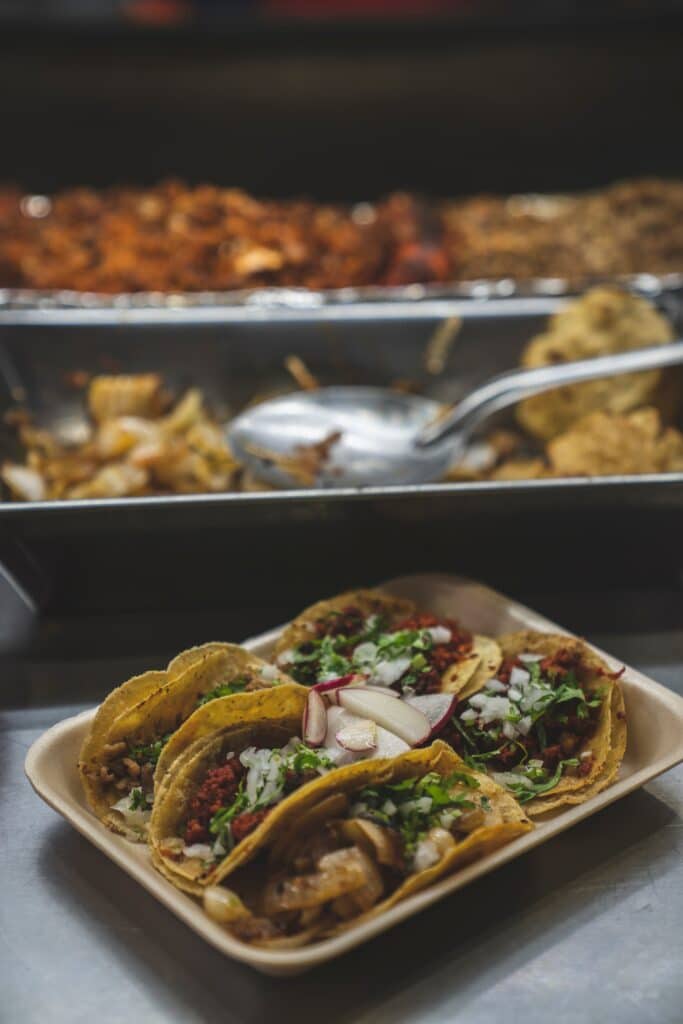
Power Bowl
With the Power Bowl, a few modifications can make it into a yummy Steak Power Bowl that can be a hearty meal.
The sodium is a little high on this one, so you may have to adjust to other meals to compensate. Substitute steak for the chicken and double the lettuce. To lower your fat intake, ask them to hold the sour cream.
Now you have grilled steak and cheddar cheese with black beans, guacamole, lettuce, tomatoes, and Avacado Ranch sauce.
Nutritional information (Modified Steak Power Bowl):
- 290 calories
- 16 grams of fat
- 920 grams of sodium
- 22 grams of protein
- 11 grams of fiber
Bean Burrito
Bean burritos are already high in fiber and protein. If they’re a little too boring, add some lettuce, onion, and tomatoes for a veggie burrito. You can also add a little sour cream, which only adds 30 calories and 2 grams of fat.
Nutritional information (1 modified burrito with sour cream):
- 380 calories
- 11 grams of fat
- 1040 grams of sodium
- 14 grams of protein
- 11 grams of fiber
Diet and nutrition safety recommendations for pregnant women
Eating well during pregnancy can be challenging, and your prenatal vitamin should fill in the most vital nutrient gaps.
If you can eat a well-balanced diet and stay hydrated, you can help yourself have more energy and feel stronger.
Knowing which foods to limit or avoid to stay healthy can be an easier route when eating anything is difficult.
Foods to avoid while pregnant
Foodborne illnesses are a primary concern during pregnancy. To avoid contamination with harmful bacteria, some foods should be handled with care, and others avoided during pregnancy.
Pregnant women are more susceptible to foodborne illnesses. Here are the foods to avoid while you’re pregnant.
- Unpasteurized milk, yogurt, and cheeses
- Most cheese in the US is pasteurized, but imported or locally-made cheeses may not be. Double-check that your Brie, Camembert, or blue-veined cheeses are pasteurized.
- Raw or undercooked eggs
- Cookie dough, Caesar dressing, mayonnaise, and hollandaise sauce made with raw or undercooked eggs can contain salmonella. If these products are shelf-stable (not in the refrigerated section when you buy them), they should be fine.
- Raw fish or seafood
- Besides raw or undercooked fish, shark, tilefish, king mackerel, and swordfish contain high levels of mercury that can damage the baby’s nervous system.
- Raw/undercooked meat
- Undercooked steak, poultry, and pork can be infected with Toxoplasmosis, Salmonella, Listeria, or E.Coli.
- Pate/liver
- It contains extremely high levels of vitamin A, which can affect fetal brain development.
- All forms of alcohol
- Excessive alcohol consumption has been associated with several fetal issues.
- Lunchmeat, hot dogs, and other processed meats
- Unless they are cooked until steaming to kill bacteria. They are also high in salt and saturated fat.
- Teas
- Avoid drinking tea with meals. The tannins prevent the absorption of iron.
- Energy drinks
- These are high in caffeine and not recommended during pregnancy.
Foods to limit while pregnant
The following foods and drinks should be limited during pregnancy to prevent adverse effects on your or your baby’s health.
- Caffeine – How much: limit to less than 200 mg per day.
- Tuna – How much: limit to two cans or two fresh steaks per week due to mercury levels.
- Sugary sodas, juices, and flavored waters – How much: 1 per day or less. These drinks are low in nutritional value and high in sugar or may contain artificial sweeteners, which can be harmful.
Nutrition recommendations for pregnant women
A healthy diet can help reduce some of the more unpleasant symptoms of pregnancy like constipation and nausea. Eating a balanced diet with plenty of fruits and vegetables, lean proteins, whole grains, and healthy fats will also promote your baby’s growth.
You should also ensure you’re getting plenty of the following nutrients. You can get them naturally through your diet and they can also be contained in prenatal vitamins suggested by your doctor.
- Folic acid – Prevent birth defects
- How much: 0.4mg per day
- Found in: leafy green vegetables, berries, nuts, beans, citrus fruit, and fortified breakfast cereals.
- Calcium – Strengthen bones
- How much: 1,000 milligrams a day.
- Found in: dairy products, broccoli, kale, fruit juices, and some breakfast cereals.
- Vitamin D – Promotes bone strength
- How much: 600 international units (IU) per day.
- Found in: fat-free dairy, skim, or 1% milk, soymilk, juice, eggs, fish.
- Protein – Promotes growth
- How much: 71 grams per day.
Conclusion
Unless your doctor has you on a strict eating plan, there’s a place for Taco Bell in your pregnancy diet. The bean burrito has the most potential, but there’s no indication that any Taco Bell product is unsafe for pregnant people.

